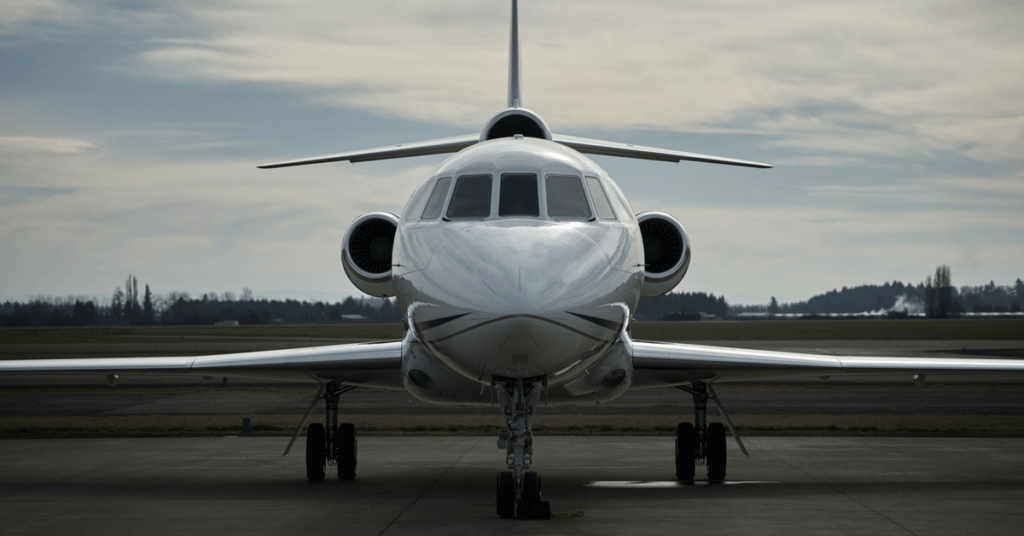
Today’s budget-conscious company can inadvertently create an aircraft operating structure that is not in compliance with the Federal Aviation Regulations (FARs) and not covered by the insurance policy.
One example involves trying to “timeshare” the aircraft without understanding all of the FAR requirements and limitations. Aviation is a highly regulated industry and between the FAA and IRS regulations, insurance requirements, liability issues and state taxes, it is easy to fall out of compliance.
Timeshare – The Definition & Charges
A time sharing agreement is defined in FAR 91.501 as an arrangement where a person leases his airplane with flight crew and no charge is made for the flights other than those specified in FAR 91.501, paragraph (d). Per FAR 91.501(d) a charge of two times the cost of fuel for the flight, plus a few listed miscellaneous expenses can be charged. The list of what can be charged under paragraph (d) is:
(1) Fuel, oil, lubricants, and other additives
(2) Travel expenses of the crew, including food, lodging, and ground transportation
(3) Hangar and tie-down costs away from the aircraft’s base of operation
(4) Insurance obtained for the specific flight
(5) Landing fees, airport taxes, and similar assessments
(6) Customs, foreign permit, and similar fees directly related to the flight
(7) In flight food and beverages
(8) Passenger ground transportation
(9) Flight planning and weather contract services
(10) An additional charge equal to 100 percent of the expenses listed in paragraph (d)(1) of this section
The insurance listed in #4 above does not allow you to pro-rate the cost of the annual insurance premium. That clause will apply if you fly to Mexico and must buy special Mexican insurance specifically for that trip.
The additional charge equal to 100 percent of the expenses listed in paragraph (d)(1) (item #10), is intended to cover all expenses that are not listed. Common expenses that are not listed are insurance premiums, crew costs and hourly maintenance program charges. The FAA acknowledged this in its Federal Register publication at the time the regulation was adopted.
Timeshares & Federal Excise Tax
Although a timeshare flight is a Part 91 non-commercial operation to the FAA, the FAA and IRS do not utilize the same definitions and the federal excise tax (FET) must be collected and remitted to the IRS for timeshare flights.
Timeshares & Insurance
Insurance considerations are important. Provide your insurance underwriter a copy of your timeshare agreements. They need to know that you will be providing flights under the timeshare agreements and receiving consideration per the FARs. Consider adding the timeshare lessees as an additional insured on your insurance.
How to Share
Assume that your company, Company X, owns an aircraft and has agreements to timeshare the aircraft to Company Y and Company Z. How can you handle costs of a flight on which there is an employee of Company X, an employee of Company Y and an employee of Company Z? The FARs do not allow Company X to “timeshare” on a seat-by-seat basis so Company X cannot charge both Company Y and Company Z for their proportionate share of the cost of the flight under their timeshare agreements. Based on the assumed facts, there are generally three options for this flight.
Under all three options, Company X should have operational control of the aircraft for the flights. Per FAA interpretation Austin – (2009) dated June 12, 2009, when an aircraft is operated under a time sharing agreement, the FAA presumes that operational control remains with the person that furnishes the aircraft and flight crew to the other party.
In the first option, Company X is flying the aircraft on Company X business and the Company Y employee and the Company Z employee are each guests of Company X. Under the FARs, Company X cannot charge or accept reimbursement from the individuals, Company Y or Company Z.
In the second option, Company X is flying the aircraft on Company Y business under its timeshare agreement and Company X charges and accepts reimbursement from Company Y per the timeshare agreement (which complies with FAR 91.501) plus Company X collects and remits the federal excise tax. The Company Z employee is a guest and neither Company X nor Company Y can charge or accept reimbursement from the individual employee of Company Z or from Company Z.
The third option is similar to the second option. Company X is flying the aircraft on Company Z business under its timeshare agreement and Company X charges and accepts reimbursement from Company Z per the timeshare agreement (which complies with FAR 91.501) plus Company X collects and remits the federal excise tax. The Company Y employee is a guest and neither Company X nor Company Z can charge or accept reimbursement from the individual employee of Company Y or from Company Y.
Consider Help
Structuring the ownership and operation of corporate aircraft can be complex and varies greatly from one aircraft to the next. To avoid inefficient and illegal operations, corporate advisors will want to enlist the assistance of an attorney experienced in corporate aviation to help reduce costs, ensure FAA compliance, and add value by creating a tailored corporate aircraft operational structure.
Michelle Wade is an attorney with the law firm of Jetstream Aviation Law, P.A. and counsel clients on the acquisition, financing and operation of corporate jets operated under Part 91 and Part 135 of the US Federal Aviation Regulations. Jetstream Aviation Law can be found at www.JetstreamLaw.com.
The information provided here is not legal advice and does not purport to be a substitute for advice of counsel on any specific matter. For legal advice, you should consult with an attorney concerning your specific situation.
